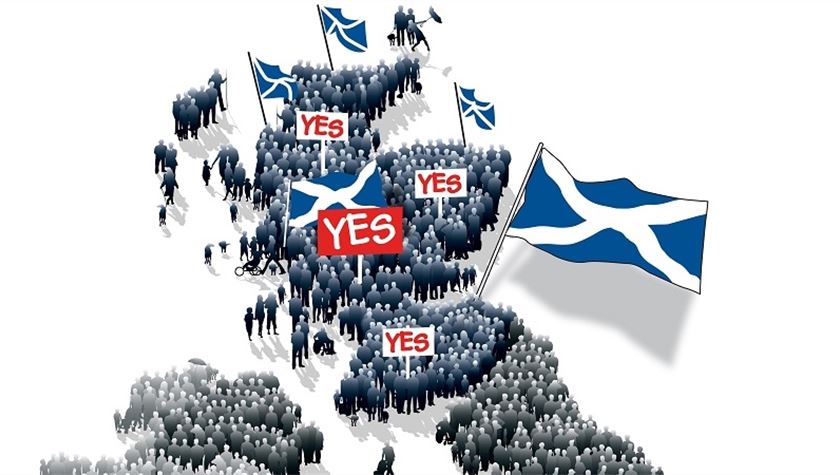News Highlight
Leader of the ruling Scottish National Party (SNP) to organise a second referendum on Scottish independence from the UK.
Key Takeaway
- Mr Cameron quickly rejected a proposal from Scotland’s new First Minister and leader of the ruling Scottish National Party (SNP) to organise a second referendum on Scotland’s independence from the UK.
- The autonomous Kingdom of Scotland was established in the ninth century and fought wars to maintain its independence from the Kingdom of England.
- The two kingdoms formed a personal union in 1603 and were then ruled by the same rulers.
- Due to economic and political weaknesses, the British and Scottish Parliaments passed the Acts of Union in 1707, establishing a political union known as Great Britain.
Scotland – Second Independence Referendum
- Pros
- Scotland would have more say over its political future.
- Several choices are currently being made in Westminster.
- Scotland is more liberal than the rest of the United Kingdom and could fight for policies that improve social welfare.
- It could also choose to stay in the EU.
- It could exploit some economic resources more freely, particularly North Sea oil.
- It would also have more resources and freedom to protect its culture and identity.
- Cons
- Scotland may be forced to abandon the Pound (GBP) as its official currency.
- Even if it permitted use, maintaining the currency while having no authority over the Bank of England.
- It is in charge of monetary policy, which would be extremely risky.
- Both Scotland and the United Kingdom would lose political power on a global scale.
- Scotland could no longer be a permanent member of the UN Security Council.
- Scotland’s independence might spark a wave of separatist movements across Europe, undermining the continent’s political union and creating social and economic turmoil.
- Because Scotland is a considerably smaller market than the rest of the UK, many businesses may decide to relocate or relocate their headquarters to London.
- While many mixed families exist, social issues may be associated with the countries’ separation.
- The separation of the countries may also cause administrative issues.
Challenges before Scotland
- Scotland’s economic case for leaving is weakening as oil prices fall and the country faces a massive fiscal deficit.
- Scotland’s trade is primarily with the rest of the United Kingdom.
- Every single member state would have to approve Scotland’s EU membership.
- Countries like Spain, on the other hand, are unlikely to support it due to their long-running independence movement.
Impact of Scottish Independence
- The independence of Scotland from the United Kingdom would have far-reaching consequences for England and Scotland.
- As well as for the stability of the union as a whole.
- According to the London School of Economics, Scottish independence might cost up to three times as much lost revenue as Brexit.
- Negotiating a trade deal with the EU or re-entering the bloc will be expensive and time-consuming.
- Scotland must also strengthen its defence capabilities and withdraw from British public funding systems.
- And form independent trade and security agreements with other countries.
- England and Scotland would have to examine the issue of establishing a physical international border.
- In addition, accounting for the large number of people and products that already flow between the two countries.
- The success or failure of a presumably independent Scotland would have consequences for the Northern Irish and Welsh independence movements, respectively.
Types of Direct Democracy
- Referendum
- The process by which proposed legislation is submitted to the electorate for approval via direct voting.
- Initiative
- The process by which the people can propose legislation to the legislature for enactment.
- Recall
- When a representative or an officer fails to fulfil his or her duties correctly, voters can remove him or her before the end of his or her term.
- Plebiscite
- The method of gathering public opinion on any matter of public interest.
- It is commonly used to settle territorial disputes.
Pic Courtesy: The Parliament Magazine
Content Source: The Hindu



